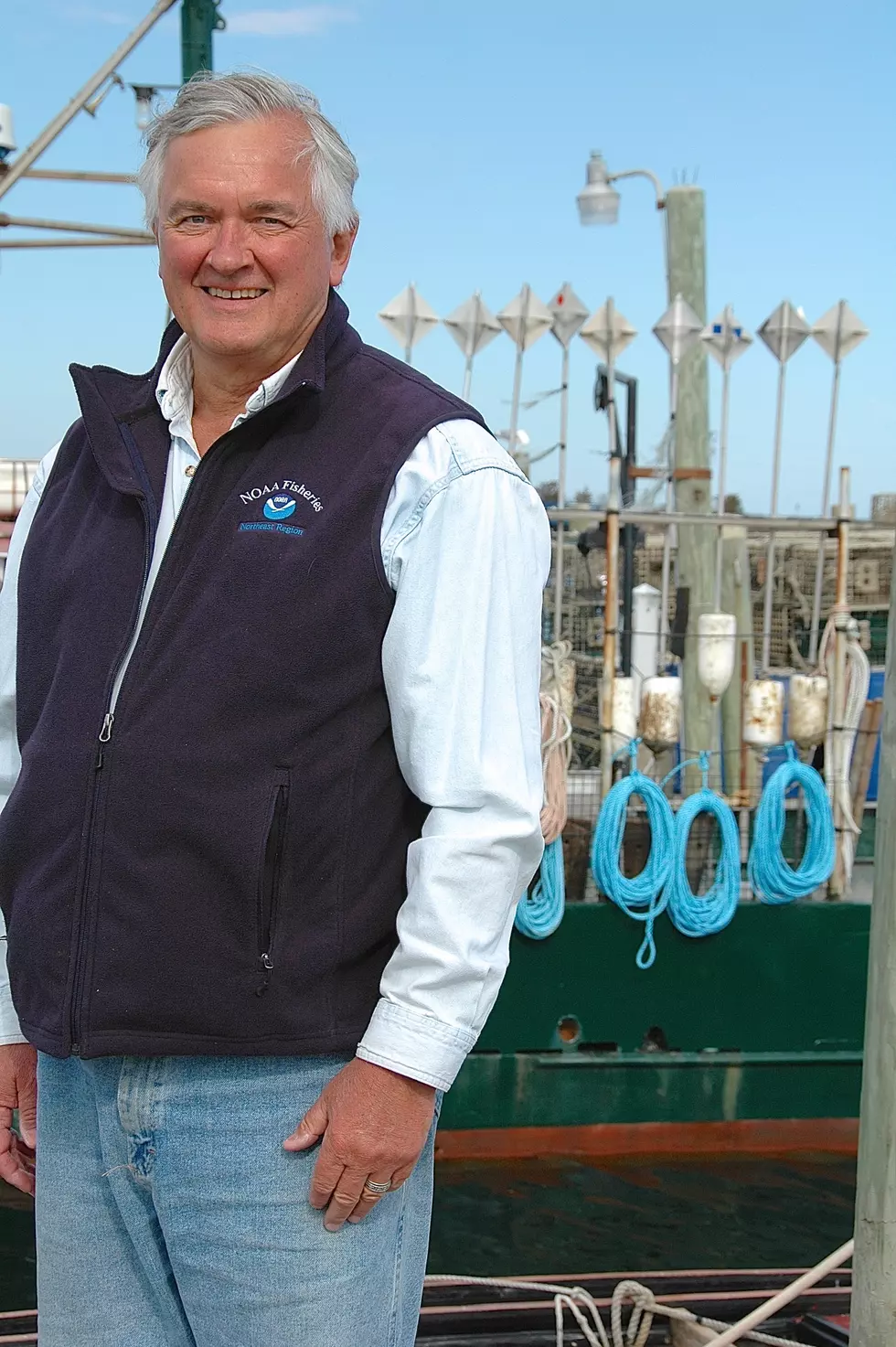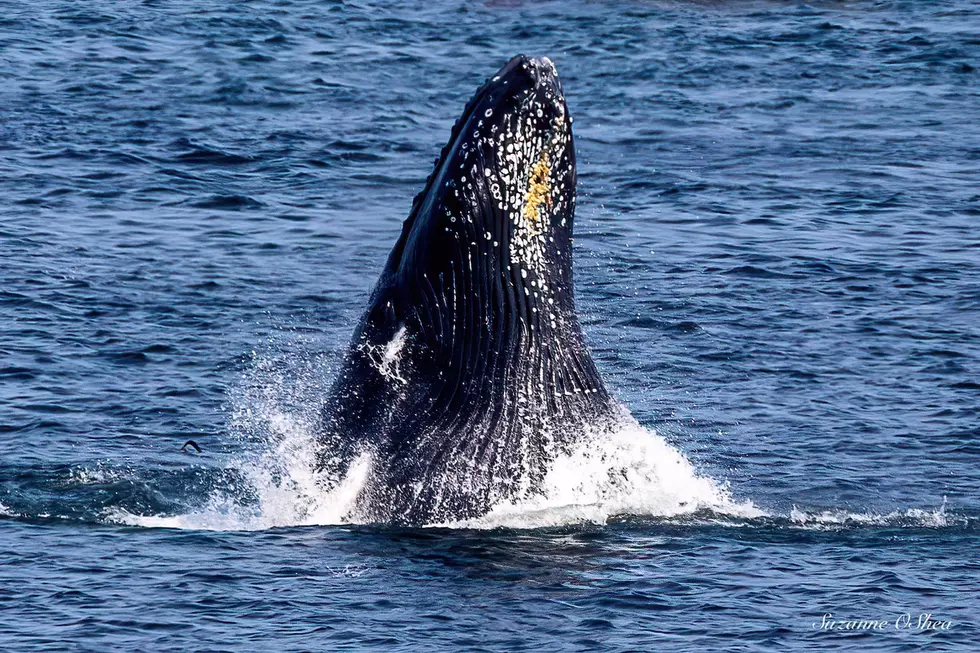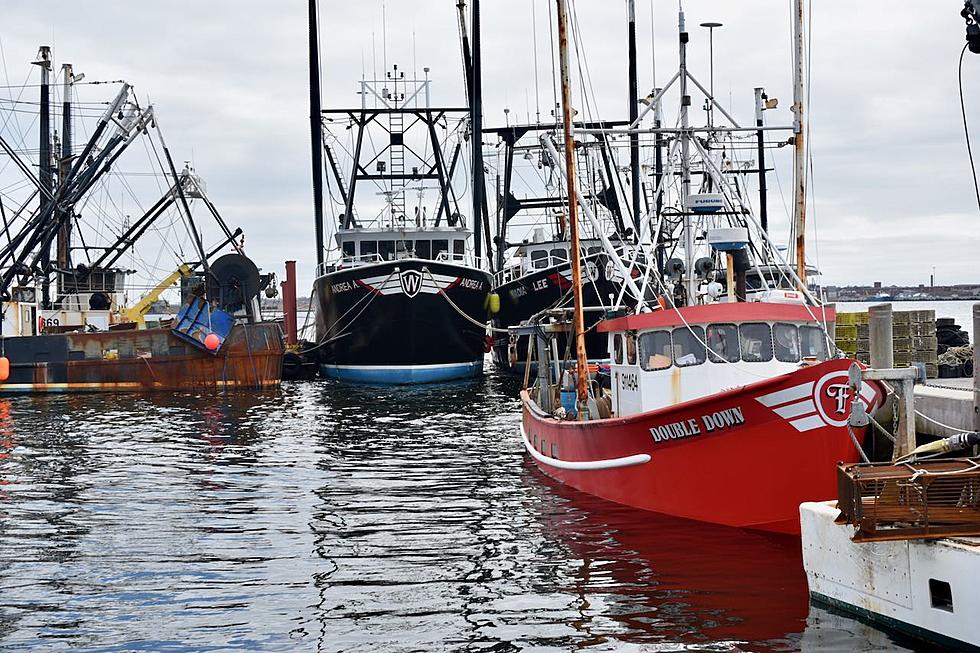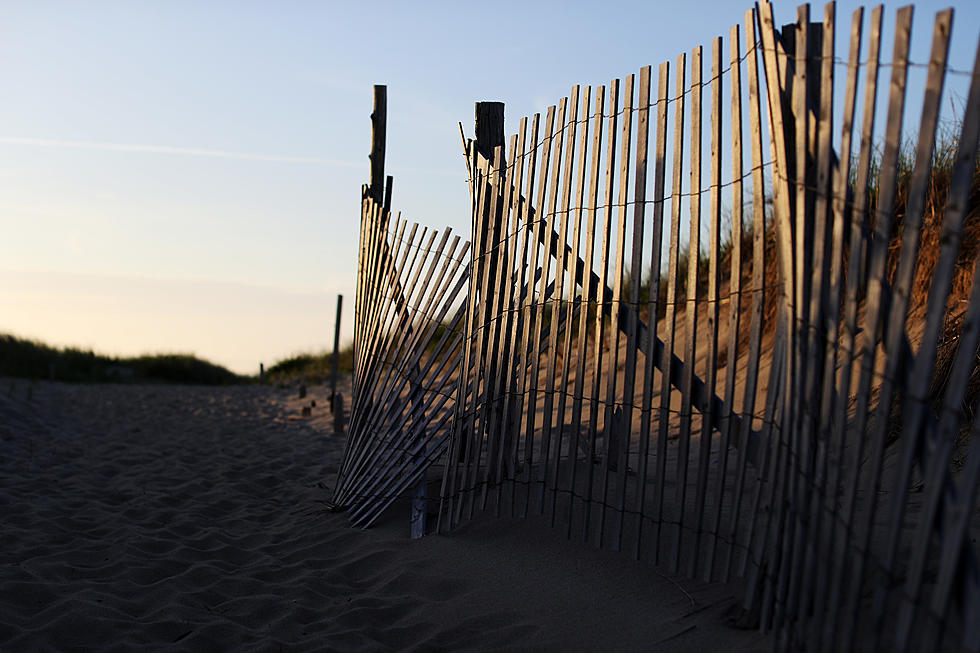
Former Mayor Bullard to Retire from NOAA Position
John Bullard formally announced today that he is retiring from his position as NOAA Fisheries Greater Atlantic Regional Administrator.
The former New Bedford mayor has been serving in the top job for NOAA's Gloucester-based office since 2012. He had recently retired from the Woods Hole-based Sea Education Association.
"When I started five years ago, I told my wife, Laurie, that I was going to be here for two or three years," he said. "And now it's five year. So I think I've overstayed my leave."
Right from the start, Bullard had to tackle one of the biggest challenges of his tenure.
"When I first got up here, the first thing on the plate was a crisis in groundfish, with very few cod. Everyone was up in arms--the industry, the environmentalists, Congress, the press, everyone," he said.
He said the New England Fishery Management Council didn't act on the crisis, either, putting it in his hands despite him being new to the position.
"They basically said, 'John, you've got to do it. We don't want to,'" he said. "So we put in emergency closures, and there were protest marches in Boston and lawsuits flying around. From both the Attorney General and environmentalists, it seemed like I was getting sued everyday of the week, except weekends."
He lamented that despite his best efforts, cod has yet to return to bountiful numbers. However, Bullard did list deep-sea coral protections, electronic monitoring pilots, the protection of fish habitats and the comeback of the humpback whale as some of his proudest accomplishments.
"Humpbacks have come back so well, we've de-listed them from the endangered species list," he said. "I wish we could say the same on North Atlantic Right Whales. They had less than 500 for a while, they were increasing population, but for the last three years they've been declining. So, we've had some good news stories, but things like cod and North Atlantic Right Whales defied our best efforts."
Bullard said serving as mayor of New Bedford helped prepare him for the position with NOAA.
"Oh boy, it has helped tremendously, because obviously coming from New Bedford--the country's number one fishing port for the last twenty years or so--gives me a background in fishing and the industry, and also a background in the people behind the industry," he said. "So when I came to this job people knew who I was, and that's been absolutely critical."
"As the former Mayor of New Bedford, John brought with him a unique connection to the fishing industry, and used that connection to improve communication with all aspects of the industry and Congress during a very challenging period for the agency," said Sam Rauch, NOAA Fisheries Deputy Assistant Administrator for Regulatory Programs.
As Regional Administrator, Bullard worked with the fishery management councils and the commission to manage 44 fish stocks, including two, scallops and lobster, worth more than $500 million each.
Bullard worked with Congress and state directors to deliver $32.8 million in disaster assistance to affected fishing families and communities. In close collaboration with the New England Council, Bullard then put quotas and closures in place to protect cod and other depleted fish stocks.
Bullard's leadership in protecting living marine resources included removing approximately 30,000 miles of rope from Atlantic coastal waters to reduce whale entanglements and expanding critical habitat for North Atlantic right whales in the region by more than 25,000 nautical miles. He also oversaw development of a strategy to restore river herring populations, imposed catch caps on mackerel and herring fisheries, and removed dams and created fish passages to double fish runs in key Maine, New Hampshire, and Massachusetts rivers.
"For me, John is an example of public service and, more importantly, an example of working with stakeholders to have a positive impact on tough issues," said Dr. Jon Hare, science and research director at NOAA's Northeast Fisheries Science Center. "I will miss working with him and am thankful for his time as regional administrator."
Bullard strongly supported groundbreaking actions created to bolster the Mid-Atlantic region's important recreational and commercial fisheries. In 2016, he approved the Mid-Atlantic Fishery Management Council's deep-sea coral amendment that protects 15 deep-sea canyons and a total area of 24 million acres, about the size of Virginia, where fragile, slow-growing corals live. These hotspots of biodiversity provide important habitat, refuge, and prey for fish and other marine life. Bullard has also advanced an action to protect small schooling fish, also known as forage fish, which serve as prey for larger fish, marine mammals, and sea birds. This would be the first ever action on the Atlantic coast to designate forage fish as important parts of the ecosystem and provide protection for them.
"Throughout his tenure as regional administrator, John has been an engaged and dedicated participant in the council process, and he has played an important role in increasing focus on the Mid-Atlantic portion of the Greater Atlantic Region," said Chris Moore, executive director of the Mid-Atlantic Council. "His insight and leadership have been especially valuable to the Mid-Atlantic Council during the development of several new initiatives such as the Deep Sea Corals Amendment, the Unmanaged Forage Fish Amendment, and the development of an ecosystem approach to fisheries management."
Bullard also led the charge to modernize access and sharing of fishery dependent data in cooperation with the Northeast Fisheries Science Center, the fishing industry, the councils and the Atlantic Coastal Cooperative Statistics Program. He championed electronic monitoring pilot projects on fishing vessels with partners in the industry and environmental non-government organizations to increase coverage and improve the data on which NOAA's science is based.
Bullard said he still has some work to do before leaving office on January 8.
"Still on my list are the Omnibus Habitat Amendment, the New England Council's Deep Sea Coral Amendment, some critical dam removals, electronic monitoring, the Carlos Rafael situation, the summer flounder crisis, and the continuing groundfish challenge, among others," he said.
With all that work still on his plate, Bullard hasn't had time to figure out what he wants to do with his impending free time.
"Well, I don't really know how to play golf. I do have five grand children. I'm looking forward to spending time with them," he said. "My wife has been very supportive of me. I've gotten to know the insides of more hotel rooms than I ever want to see again without her. That's the one part of this job I really don't like, is all of the incessant travel. I'm really looking forward to not having to do that."
And he's not saying that he's permanently retired yet, either.
"The last time I was retired for three weeks," he said with a laugh. "I hope to be able to do a better job than three weeks at retirement, but we'll see."
NOAA will launch a search for Bullard's replacement within the next several months.
Tim Dunn contributed to this report.
More From WBSM-AM/AM 1420


![Bullard’s Public Life in New Bedford Highlighted in Memoir [TOWNSQUARE SUNDAY]](http://townsquare.media/site/518/files/2023/07/attachment-Bullard-Book.jpg?w=980&q=75)






